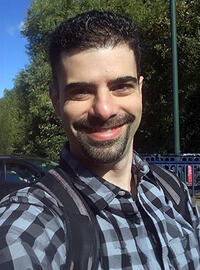The Second UAI European Conference in Tallinn
The Second UAI European Conference in Tallinn
By Sebastian Nozzi, UAI European Continental Coordinator, Germany; Karmo Kalda, conference chair, Estonia; and Peep Sõber, translator, Estonia
Editor’s Note: The second European Urantia Conference (not counting the global international conference held in Amsterdam in 2018) took place July 11-14, at the Tallink City Hotel in Tallinn, Estonia. It was co-sponsored by Urantia Association International (UAI), Urantia Foundation, and Truthbook, and was hosted by the Estonian Urantia Association. In this article, three readers closely associated with the conference share their thoughts on what made the conference a success.
Perspectives on the Tallinn Conference from Sebastian Nozzi
This past July the second European conference organized by UAI took place in Tallinn, Estonia. It welcomed 87 readers coming from 15 different countries. The talks and group activities were translated into five different languages—Estonian, Finnish, French, Lithuanian, and Spanish.
The conference was a huge success and received positive feedback from participants and speakers alike. It marks an important milestone in the history of European events.
Sparks Ignited: The first European conference sponsored by UAI was in 2016 in Hungary, Budapest. It was successful and attracted visitors from other parts of the world, in particular North America. Indeed, it felt like an international conference. It served to infuse us Europeans with energy and embolden us to start holding regular European conferences in the future.
At the end of 2017 many European leaders got together to make plans for the next European conference. Many cities were proposed, but most of them lacked a local organization with the potential to carry the idea to fruition. I was present when Karmo Kalda, representing the Estonian Association, boldly stepped forward and stated, “We can host the next European conference.” This made such an impression on me that I cast my vote for the project.
Made in Europe: The Tallinn conference was the collaboration between people from different associations. Jaap Terra, the main organizer of the 2018 Amsterdam conference, offered his help and expertise to Karmo. The Dutch acted as coaches and helped set up the groundwork to get things started.
Equally positive was the natural collaboration between the Estonian and the Finnish associations. Risto Mäntynen, the president of the Finnish Association, participated in key aspects such as website and logo design, program, choice of speakers, and more. The Finns also took responsibility in organizing the post-conference.
Our Urantia Young Adults International committee chair, Anna Zeven, who is Dutch, organized the pre-conference. I did not attend it, but when I met the group who did, many reported about life-changing events and moments.
And finally, the UAI’s conference chair, Antonio Schefer, made sure that the process went smoothly, guiding the organization and taking care of many other aspects surrounding the conference.
For the most part, this event was “made in Europe.” But in all fairness it should be said that it would not have been possible, and only half as fun, without the support of our co-sponsoring international organizations (such as UAI and Urantia Foundation) and without the help, support, participation, and presence of our international brothers as sisters.
The Tallinn Effect: The conference’s theme was “Sowing Seeds.” The theme is generic enough that many different perspectives can be presented upon it (as was indeed the case when looking at the program). Also, it is something that the movement in Europe desperately needs in order to grow. It is certainly thought-provoking: how to sow seeds in Europe?
The conference in Tallinn was a good example of “sowing seeds.” It goes to show that a small but dedicated team can sow seeds and turn an idea into a real event. With time, patience, dedication, planning, and execution, things that start as an idea (the seed) can grow into a vision which finally materializes into reality.
But impressive as the work done by the Estonian team was, it was not what I call the “Tallinn effect.” Many wonderful things transpired during this conference and afterwards. The stories are many, and each of them as unique as the people involved in them. Old friends were reunited, new friendships were formed, people were inspired, and new energy and enthusiasm were given to us to start new projects or resurrect abandoned ones. To keep the fire in our hearts alive and do something positive with it—this is what I call the “Tallinn effect.”
Conclusion: The Tallinn conference marked another important milestone in the history of the Urantia movement in Europe. This level of success and cooperation shows that, despite our challenges, we are moving in the right direction towards a more dynamic, integrated, and synergetic Urantia movement in Europe.
My gratitude goes out to all who served in making this possible.
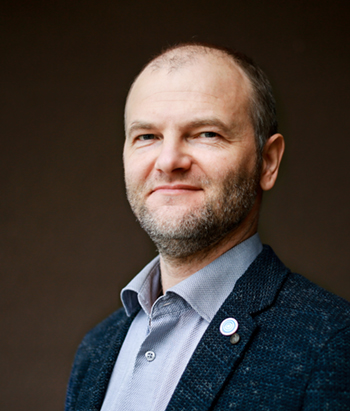
Thoughts on Principles of Conference Planning from Karmo Kalda
People who have organized events such as our conference usually say that they require a lot of work and problem solving. Yes, there were problems and difficulties, but not at the concept stage. After the 2017 meeting in Sitges, Catalonia, Antonio Schefer asked me to prepare an overview of our vision for the conference, and I had in my mind a full picture of what it should be. When I introduced it to other Estonian readers, they didn’t have anything to add. I do not think that I came up with the concept on my own. Someone—perhaps the angels—must have put it into my head.
Attitude: I believe that everything starts with your attitude. A duty that you have undertaken should be seen not so much as a duty but as an opportunity to do something better in this world, and that is the attitude you should bring to the project. When we had our first conference meeting with the Estonian organizing team, I emphasized that the people who will come to Tallinn are not just attendees of the conference, but our brothers and sisters who must feel that they are in good hands. We should see ourselves as a mother hen gathering her chicks under her wing.
Cultural Aspects: Whenever I speak with someone who has attended a conference, they usually don’t remember the topics of the presentations, but they do remember the people, the emotions, and the joy. Also, we don’t always have time to arrive early or stay late and become acquainted with the city or country we are visiting. So, we offered opportunities during the conference for sightseeing and spending time getting to know one another.
Finances: Simply put, the budget must always be either in balance or with a surplus.
Gratitude: Thank you, Antonio, for trusting us! Thank you to all of the presenters! Thank you, attenders! And thank you to all who supported us in so many ways!
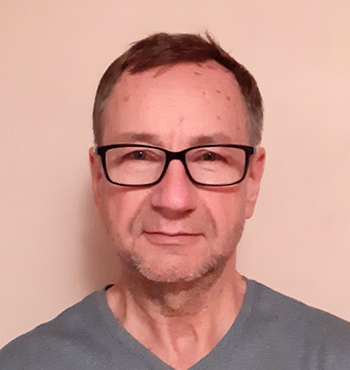
Reflections on Sowing Seeds from Peep Sõber
In the early 1970s, some unknown Finnish readers gifted a book to the leader of a spiritualist group of which I was a member. Bringing that kind of book—a religious one—across the Soviet border into Tallinn was criminal. But the Finns were lucky because the border guards didn’t notice the book. These readers didn’t know our leader but had somehow obtained his home address, and they planted a seed in the right soil.
People here at that time were spiritually more hungry than they are now, living in a free country. Nevertheless, after we had translated the whole book in order to read it, I was the only one who appreciated its great value. But sometimes even one man in the right time and place is enough to begin the process of growth into the next stage. During the preparations for this conference I was amazed at how a little seed planted about 50 years ago could mobilize people today to come here from so many countries to attend a conference.
There are few readers here, and our local association is small compared to others. So we wanted our concept for this conference to be practical: qualitative inner growth and quantitative outer growth. We wanted to hear how our brothers and sisters have achieved what they have and to share with everyone what we have done.
Can we grow from the present stage in both ways? Yes. But one thing is obvious: new quality can arise from our inner world, and to accelerate this process we need relationships—with God through the inner spirit (the vertical direction) and with other readers (the horizontal direction). Therefore, conferences are a basic need.
Once in Chicago at an international conference I remarked to my roommate from Germany how odd it was that European readers could meet together only in America. Now this has changed, and we are hopeful that the practice of holding European conferences will continue.
For many European readers it was their first time at a conference, and I can only imagine how inspiring they found it.
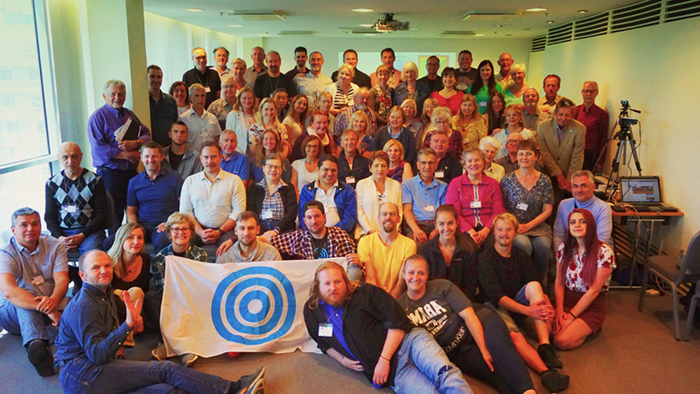
2nd European Urantia Conference
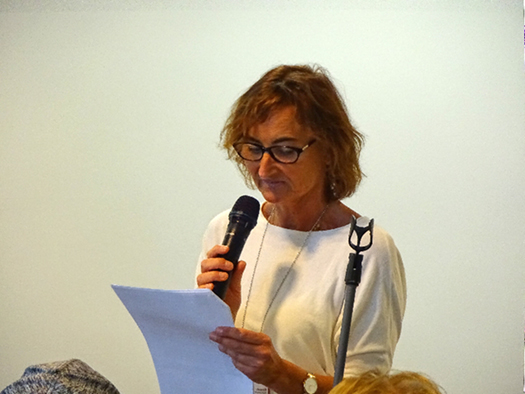
Agnès Lazar
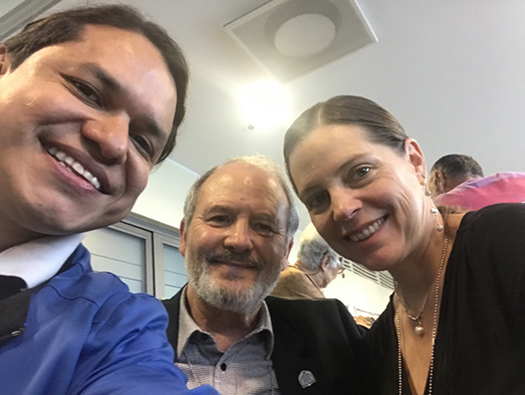
Antonio Schefer, Georges Michelson-Dupont, Tamara Strumfeld
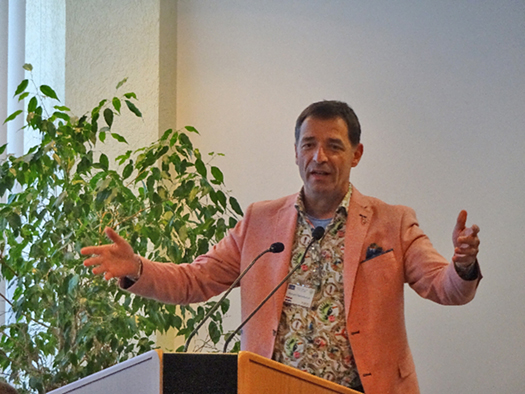
Marcel Peereboom
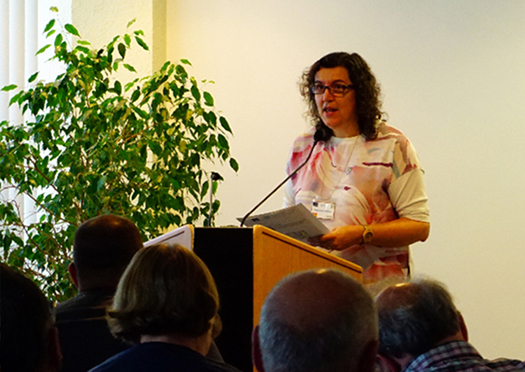
Olga López
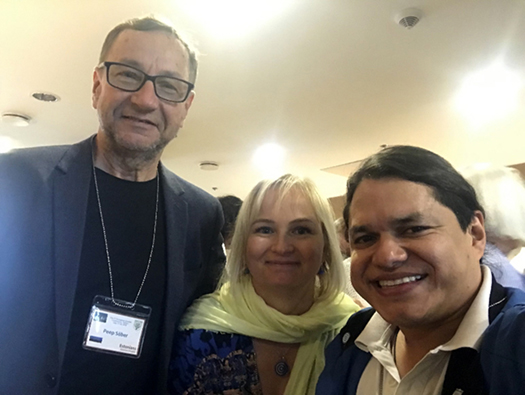
Peep Sõber,Margit Kalda, Antonio Schefer
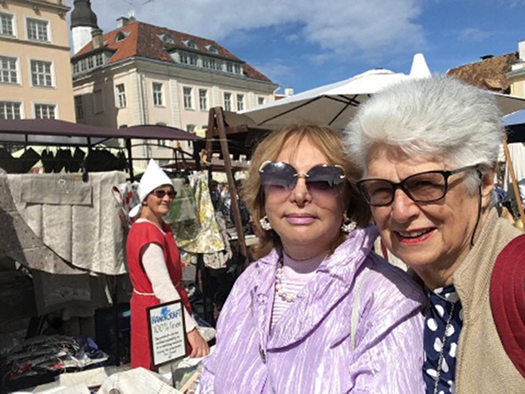
Tamilia Ragimova, Danielle La Scala Martinet
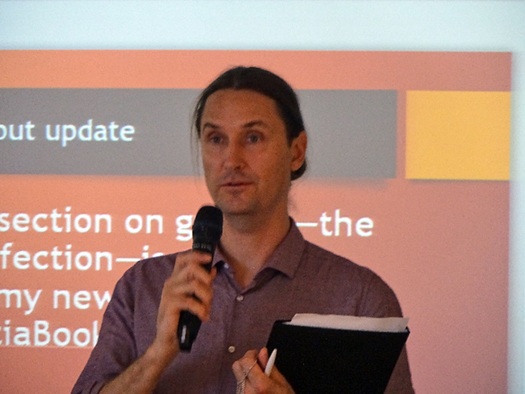
Michael MacIsaac
